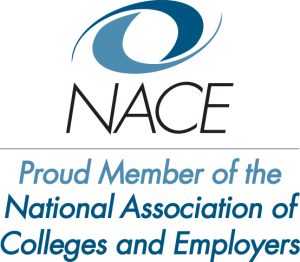How Does PathwayU Focus on Purposeful Work?
One of the core values underlying PathwayU’s career assessment platform is our desire that all students and job-seekers identify a pathway for expressing their purpose within the context of their careers. The term “purpose” is used with increasing frequency in the career development world, and for good reason—evidence suggests that when people experience a sense of purpose within their careers, lots of benefits result.
But can an assessment platform like PathwayU actually measure a sense of purpose in someone’s career? The answer is a resounding yes. Indeed, PathwayU is the only assessment platform on the market today that does so.
In this blog post, we address general questions about the role of purpose in career development and more specific questions about how PathwayU measures purpose and offers feedback to empower users to incorporate purpose in their career decision-making.
What is a Purpose?
A purpose is your intention to accomplish something that matters deeply to you and that benefits the world.
Can a person have more than one purpose?
Absolutely. Many people describe an overarching sense of purpose in life, and then more specific purposes within particular life roles (e.g., career, family, marriage, volunteer, citizen, leisure). In general, when those more specific purposes align with one’s broader sense of purpose in life, well-being results.
What difference does it make to have purposeful work?
Research reveals that people who experience a sense of purpose*¹ in the career domain tend to report tremendous benefits in their career-related and general well-being.
They are more confident and comfortable in their career choices, they are happier at work, they are more committed to their careers and to their organizations, and they put in more effort at work, compared to people who lack a sense of purpose. They also feel that life as a whole is more meaningful and satisfying than do people without a purpose.
What type of purpose does PathwayU target?
PathwayU focuses specifically on purpose within one’s career, or “purposeful work,” although a portion of the Discern Your Calling, Live Your Purpose workbook also invites users to consider how their purpose for work aligns with their broader sense of purpose in life as a whole.
How does PathwayU promote purpose?
PathwayU helps people take stock of their current sense of purpose at work by measuring the degree to which users are searching for a purpose, currently perceive a sense of purpose, and are currently living out a purpose in their careers.
Their scores suggest ways for users to strengthen their sense of purpose at work by better understanding how they are unique (in terms of interests, values, personality, and workplace culture preferences), identifying pathways that fit them well (via their career match results), and preparing to pursue those pathways (via their job search results and tools). The Discern Your Calling, Live Your Purpose workbook helps them make sense of their results and evaluate how they align with their broader sense of purpose in life.
Do Match Strength scores measure purpose?
No. The match strength scores are an estimate of how well a particular career path fits a users’ unique combination of interests and values. The higher the match strength score, the more likely the user will find that career path a satisfying option, should the user choose to pursue it.
This is important in considering career paths through which users may express their purpose, but they are not a direct measure of purpose.
What are PathwayU’s “Purpose Scores”?
These are the direct measures of purpose within PathwayU. PathwayU’s “purpose scores” refer to results from three measures of purposeful work: (1) searching for purpose, (2) perceiving a purpose, and (3) living a purpose.
These are brief measures; Searching for a purpose and Perceiving a purpose are each measured using four items and are drawn from the well-established Calling and Vocation Questionnaire developed by Dik, Eldridge, Steger, and Duffy (2012)².
The Living a Purpose score is six items and is a slightly adapted version of the Living a Calling Scale developed by Duffy and colleagues (2012)³. All three of these measures have strong evidence of reliability and validity, as reported initially in those two 2012 papers and supported in dozens of studies since.
What are the Purpose Scores used for?
PathwayU’s Purpose Scores are diagnostic of users’ current sense of purpose in their career. Results can help users take stock of how the role that a sense of purpose might play in their career lives. Results also are used to direct their focus to particular aspects of the PathwayU platform that may be most helpful to them in integrating a sense of purpose in their career development. For example:
High Presence, High Living
Users are directed to use the interests, values, personality, and workplace preferences assessments to develop a deeper sense of self-understanding; to use the Career Match tool to affirm that what they are already doing, and to use the Job Connector and Tools tab (especially the Workbook) explore how they might expand or enhance it.
High Seeking, Low Presence
Users are directed to use the interests, values, personality, and workplace preferences assessments to develop a deeper sense of self-understanding, and to use the Career Match tool to explore career paths predicted to fit them well, which may provide meaningful opportunities for expressing their purpose. The Workbook may prove helpful in facilitating this process.
High Seeking, High Presence, Low Living
Having already gained a sense of purpose in their career, but recognizing they do not feel they are expressing it currently, users are directed to focus on the Job Connector and Tools tabs to help identify and prepare for tangible opportunities that would enable them to live out their purpose in the career domain.
Low Seeking, Low Presence
Not all users will find pursuing a sense of purpose important to their journey. Some may orient to a sense of purpose within other life roles, and others may simply have other motivations that guide their decision-making.
For such users, the feedback notes the benefits of purposeful work and encourages them to consider purpose when interacting with the PathwayU platform. However, a sense of purpose is not a necessary prerequisite for making career choices, and the platform offers guidance regardless of a person’s status in terms of their sense of purpose.
How should I use the Discern Your Calling, Live Your Purpose workbook?
The workbook (available at the Tools tab) is designed to guide users in a reflective process of integrating and applying their PathwayU results, with an eye toward fostering a sense of purpose. The use of expressive writing exercises is informed by evidence that such activities function as “critical ingredients” within effective career development interventions.
Users are therefore invited to complete the workbook, perhaps as homework in the career counseling process. An alternative is for counselors to simply incorporate the writing prompts in their face-to-face sessions with clients, using them as discussion openers during sessions. Writing is helpful, but incorporating the content itself is most important, so use the workbook content flexibly, in the manner that best fits your goals and local context.
Isn’t assessing and promoting purpose tantamount to imposing our values on clients?
There was a time when counselors were urged to adopt a “value-free” or “value-neutral” stance with clients. However, it has since become widely acknowledged that there is no such thing as value-free counseling.
Rather, values always govern counseling relationships, so the question is not whether values should be incorporated, but rather which values, and how? We advocate adherence to the ethical principle of beneficence—that is, to do good and help others. Given the overwhelming evidence that purposeful work is linked to both career-related and general well-being, encouraging clients to integrate purpose in their career development is an ethically-grounded approach.
We advocate sharing counselor and client ideas about the good life, the good society, and what a good outcome from career counseling looks like. Doing functions as informed consent and empowers clients to articulate their own vision of a good outcome from the process.
What if I have additional questions about how to use PathwayU to coach clients toward purposeful work?
Just reach out to us at info@jobzology.com or 970-222-7636—we’d love to chat with you about how to use our system to help your clients thrive.
¹This summary includes results from research on perceptions of work as a calling, of which purposeful work is a defining feature.
²Dik, B. J., Eldridge, B. M., Steger, M. F., & Duffy, R. D. (2012). Development and validation of the Calling and Vocation Questionnaire (CVQ) and Brief Calling Scale (BCS). Journal of Career Assessment, 20, 242-263.
³Duffy, R. D., Bott, E. M., Allan, B. A., Torrey, C. L., & Dik, B. J. (2012). Perceiving a calling, living a calling, and job satisfaction: Testing a moderated, multiple mediator model. Journal of Counseling Psychology, 59, 50-59.
-1.png?width=288&height=67&name=PathwayU_PGLogo%20(1)-1.png)











